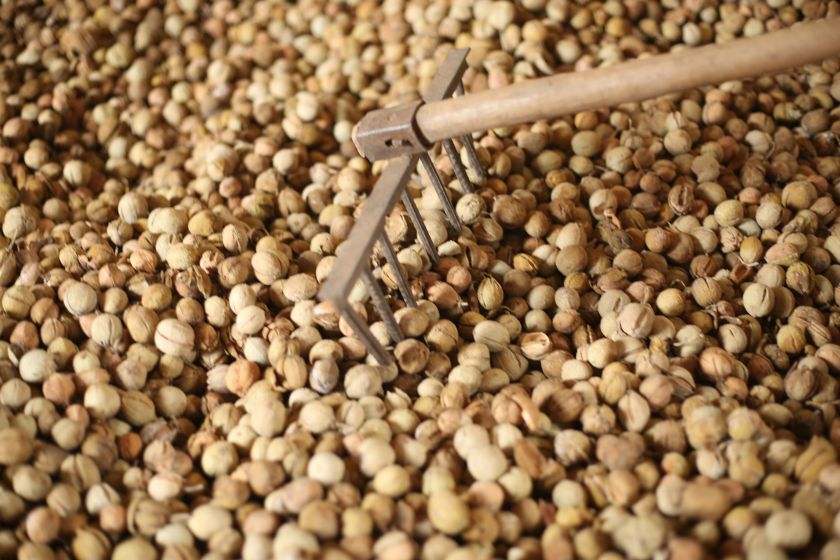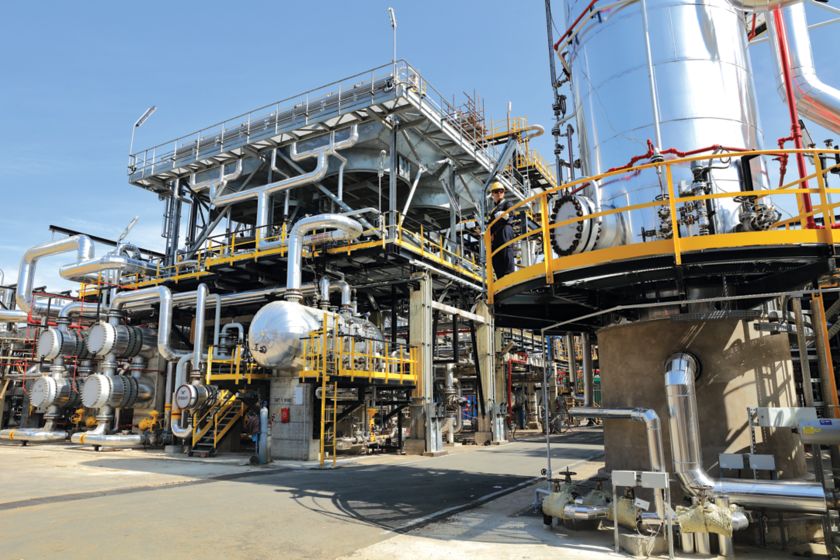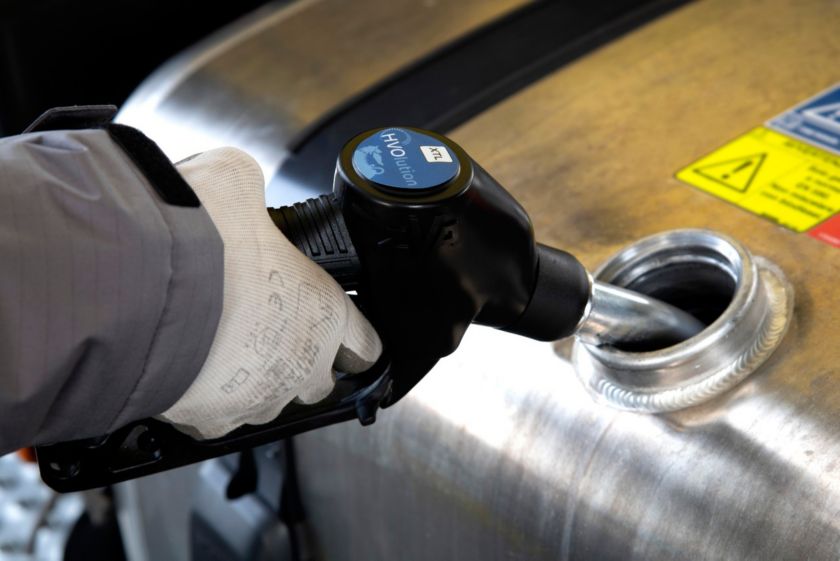
Or , our new artificial intelligence tool.
MyEni Login
Ecofining™, a proprietary biofuel technology
The process that uses biogenic raw materials to produce high-quality biofuels.

What is Ecofining™?
Processing biogenic raw materials into high-quality biofuels. This is the innovation at the basis of the Ecofining™ process, that we have developed with Honeywell UOP. Technology contributes to the decarbonisation goal, especially for the mobility sector. The process, given its great flexibility, allows to treat different types of feedstocks, animal fats and vegetable oils from waste from the agri-food industry and used cooking oils. The raw materials thus become advanced biofuels, such as HVO (Hydrogenated Vegetable Oil), marketed as HVOlution, the first biofuel of Enilive produced with 100% of renewable raw materials (pursuant to Directive 2018/2001, also known as REDII).

Industrialisation
What is it for?
Biofuels are already available and can be used immediately on almost all heavy vehicles and on some passenger vehicles that have been validated for XtL fuels: a solution to help reduce CO2 emissions from transport, a sector that is currently still more than 90 per cent dependent on fossil fuels and emitted almost 8 Gt CO2 in 2022, more than 20 per cent of global emissions from energy consumption (source IEA 2022). For them to be truly sustainable, however, it is important that they are produced from raw materials that do not compete with the food chain. Thanks to the proprietary EcofiningTM technology, advanced biofuels are produced, which, as defined by the Renewable Energy Directive REDII, are produced from raw materials that guarantee high CO2 emission savings as they are obtained from residues and/or waste from the agro-food chain.
-
Seeds for processing into biofuels.
-
Gela raw material processing plant
-
With Ecofining™ organic raw materials become biofuels.

Seeds for processing into biofuels.

Gela raw material processing plant

With Ecofining™ organic raw materials become biofuels.
How does it work?
Biofuels are obtained by subjecting raw materials to a series of processes. Wastes, refuse and oils arrive at the biorefinery in ships and tankers and are stored in tanks before being subjected to two treatments:
- a physical one to remove impurities
- a chemical one that leads to the actual transformation into biofuels.
During the first (physical) treatment, any critical components for the Ecofining™ section are removed from the biochar, in particular solid residue and gum through washing and centrifugation procedures (degumming), followed by metals through an earth filtration system (bleaching). The resulting oil, which is free of metals and solid residues, then goes through the second (chemical) treatment, Ecofining™, consisting of two stages:
- hydrodeoxygenation (which eliminates the oxygen)
- isomerisation (to transform n-paraffins into isoparaffins with suitable cold properties).
The oils mainly consist of triglycerides and fatty acids, which are transformed through two stages into hydrocarbons that are very similar (isoparaffins) to fossil diesel. Hydrogenation results in the total removal of oxygen, the presence of which in biogenic products promotes the formation of bacterial colonies and mucilage. HVO biofuel is therefore unaffected by these issues. This is also why HVO can be used in its pure form, in compatible engines, without having any particular impact on vehicle maintenance. Moreover, pure HVO has a high calorific value, similar to that of fossil diesel, and a much higher cetane rating than fossil diesel, which permits excellent combustion, especially during cold starts, reducing engine noise and ensuring high thermodynamic combustion efficiency. HVOlution is free of aromatics and polyaromatics and meets the EN15940 European specification for synthetic paraffinic and hydrotreated (XTL) diesel.
Ecofining™ is the technology that has enabled us to convert two of our conventional refineries into biorefineries: Venice-Porto Marghera (the first refinery in the world to be converted into a biorefinery in 2014) and Gela (where operations begun in 2019). In addition, three other biorefineries are starting up in Livorno and at the SBR plant in Chalmette (USA) for biofuel production. Other two biorefineries in Malaysia and South Korea are under costruction and the construction of a biorefinery in Priolo is being planned.
Features and performance
-
350 kton/y
the organic raw material processing capacity of the Venice biorefinery
-
700 kton/y
the organic raw material processing capacity of the Gela biorefinery
-
>3 MTPA
(mln ton/y) biofuels produced with Ecofining technology by 2025.
Technological partners
Learn more about our technologies
Is it possible to power a bus using potato chip oil?
That’s right. They exist and are already being used: biofuels made from vegetable oils - including the ones you make French fries with.
05 October 2023





















